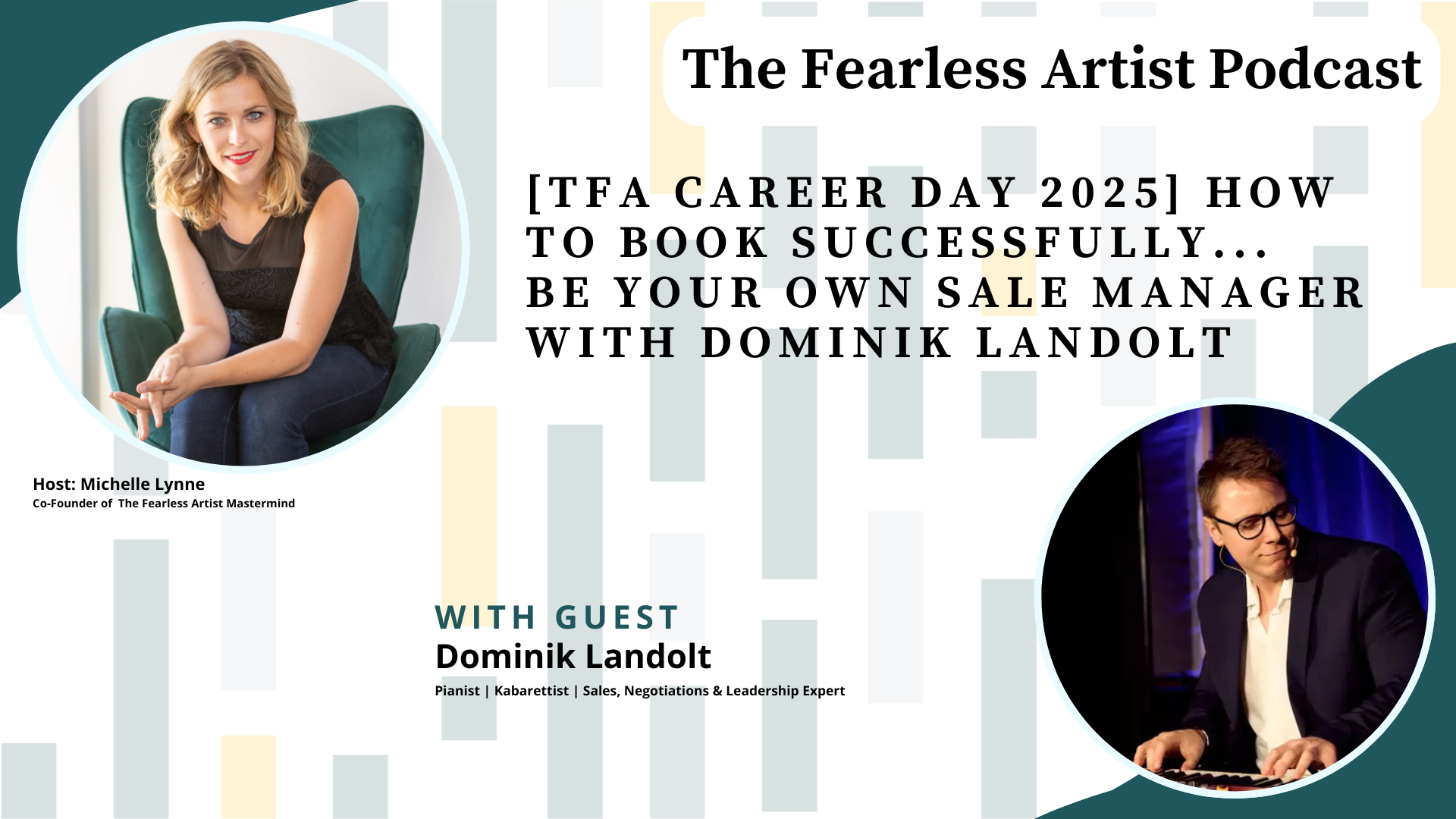[TFA Career Day 2025] How to book successfully… be your own sale manager with Dominik Landolt
Episode 59

Subscribe to The Fearless Artist Podcast
Intro/Outro music by Michelle Lynne • Episode produced by phMediaStudio, LLC

Intro/Outro music by Michelle Lynne • Episode produced by phMediaStudio, LLC